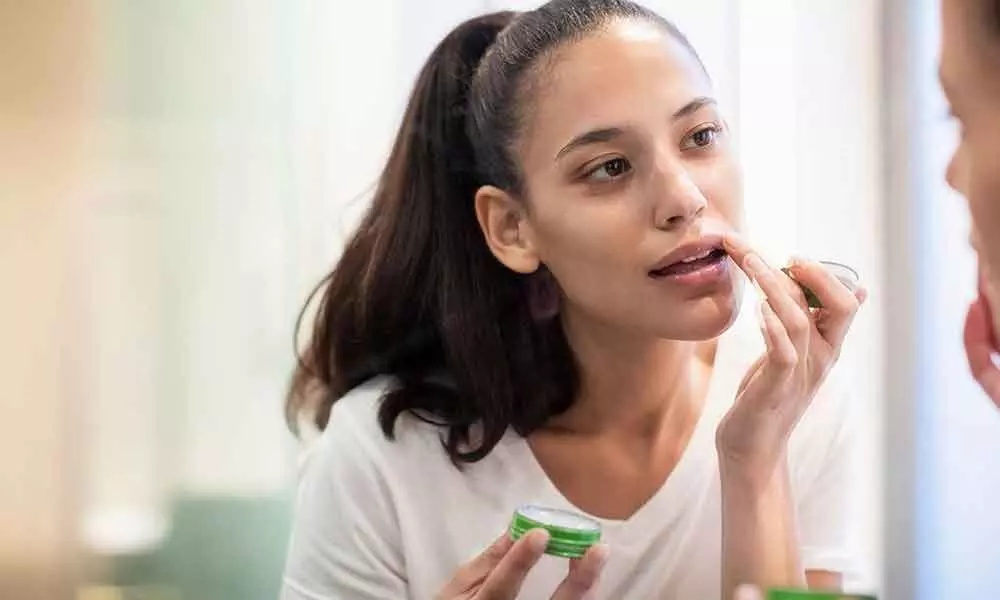Aloe Vera for Acne

Aloe Vera for Acne
Aloe Vera is also a powerful natural moisturiser and seals off loss of moisture. It softens dead skin cells and helps their removal, leaving the skin smoother and brighter
Nothing much blooms in winter, but pimples may be an exception.
Wintertime can be hard on the skin. When cold air hits our face, it rips away natural surface lipids which act as a layer of protection. Winter tends to be the driest time of the year. Cold air holds less moisture and your skin becomes dry, itching, flaking, and peeling due to the chill outside. Cold weather, wind, and dry indoor air can suck moisture from your skin. When moisture leaks out of the skin, the oil glands will overproduce sebum to lubricate/hydrate the skin.
While a little keeps your skin soft and moist, too much can result in clogged pores and more acne. Your face's "T-zone"—basically, your forehead, nose and chin— produces the most sebum than almost any other part of your body, which is why this area is prone to pimples when the temperature dips.
In Ayurveda aloe vera is used to treat skin problems like acne, psoriasis and even eczema. It contains zinc, which has a healing effect on wounds, burns, boils and eruptions. That is why it has been used in the treatment of acne and acne scars. Aloe Vera is also a powerful natural moisturiser and seals off loss of moisture. It softens dead skin cells and helps their removal, leaving the skin smoother and brighter. In fact, it helps the normal functions of the skin by improving its capacity to retain moisture.
In acne conditions, the skin may suffer from superficial dryness. That is why aloe vera helps acne and pimples, by moisturising the skin and relieving dryness. Aloe vera also has anti-bacterial and anti-inflammatory properties, which are very helpful in healing acne. It also soothes the skin and relieves pain. Aloe Vera has anti-oxidant properties too and boosts the skin's cell renewal process. It softens dead skin cells and helps in their removal, leaving the skin smoother and brighter.
You can buy aloe vera gel, or obtain from the aloe vera plant growing in your home. The gel obtained from the plant itself is the leaf pulp, found in the inner portion of the leaves. The aloe juice is found just beneath the outer skin of the leaves. However, while using it directly on the skin at home, one should wash the plant well and observe total hygiene.
• The aloe vera gel or juice may be applied on the face and then washed off with plain water after 20 minutes. It helps to soften and moisturise the skin. It also helps in the prevention of acne. It may be applied to moisturise and oily skin too, as it does not contain any oil.
• Take one tablespoon besan, one teaspoon each orange peel powder and curd and one tablespoon aloe vera gel. Mix together and apply on the skin, washing it off after 30 minutes.
• Mix one teaspoon aloe vera gel with 2 teaspoons rose water and 3 teaspoons multani mitti. Mix into a paste and apply on the face. Wash it off after 20 minutes.
• If there are spots on the face, apply aloe vera gel on the spots and leave on overnight. Wash the face next morning.
• If there is redness on the skin due to acne, or the eruptions are reddish, apply aloe vera gel daily on the face, washing off with plain water after 20 minutes. It also soothes irritation.
• Mix one level teaspoon powdered cinnamon with one teaspoon each honey and aloe vera gel into a paste. Apply on the face and leave on overnight Wash face the next morning.
• Mix Aloe Vera with lemon juice and apply on the face. Wash off after 10 minutes. This helps to lighten scars.
• Anti-acne spray: Take 40 ml mineral water, 3 teaspoons aloe vera and 2 drops Tea Tree oil. Put in a small sprat bottle. Spray on the face or areas with acne. Avoid eyes. Shake well before use.
• If there are blackheads, use a scrub to prevent acne. Mix aloe vera gel with a little rice powder or ground almonds. Apply on areas with blackheads and rub gently with small circular movements. Wash off with plenty of plain water.
• Aloe vera applied directly on acne or pimple marks help to minimise them. Mix 2 teaspoons aloe vera gel and add 2 drops of lemon juice. Dip a cotton bud in the mixture and apply directly on the pimple or acne eruption. Leave on for half an hour and rinse with warm water.











